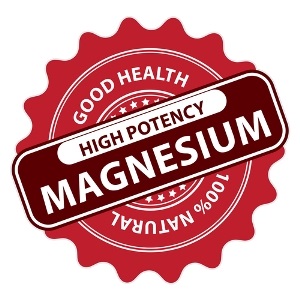
Do you remember how you use to fall asleep the moment your head hit the pillow? For many people this is but a distant memory as they spend night after night waiting for the elusive arms of Morpheus to enfold them.
High rates of insomnia in SA
According to surveys in Canada and the US, the rate of insomnia among the adult population in the West is close to 20 per cent, and an analysis of sleep problems across the developing world – published in 2012 in the journal Sleep – indicates that 16.6 per cent of the population in the countries surveyed suffer from sleep-related problems.
A surprising finding of the study was that sleep problems are not linked to urbanisation, as the people taking part in the survey were living in rural communities.
Also striking were the differences between countries analysed. Indonesia and India had a very low prevalence of sleep issues while Bangladesh had the highest incidence among all the countries in the study. In Africa, Tanzania, Kenya and Ghana had rates of between 8.3 per cent and 12.7 per cent, but South Africa had double the rate of other African countries at 31.3 per cent for women and 27.2 per cent for men.
Insomnia linked to anxiety and depression
The researchers “examined potential links between sleep problems and social demographics, quality of life, physical health and psychiatric conditions. The strongest link was found between psychiatric conditions like depression and anxiety and sleep problems, mirroring trends seen in the developed world.”
Talking to family and friends about insomnia, you might get advice ranging from lifestyle changes to herbal remedies to getting a prescription for industrial strength sleeping tablets from your GP.
There may, however, be a simpler (and considerably cheaper) solution to your sleeping problems.
The ‘Magnesium Miracle’
According to Dr Carolyn Dean, author of The Magnesium Miracle, magnesium is a mineral that prevents and treats diabetes, high blood pressure, high cholesterol, migraines, heart disease, osteoporosis, anxiety, insomnia, and a number of other serious health conditions. Up to 80 per cent of people in the West may be magnesium deficient, mainly because of depleted soils, the way food is prepared and overconsumption of alcohol, coffee, sugar and protein.
If magnesium can cure or prevent so many diseases and conditions, the question is why don’t doctors and other medical professionals tell us about the properties of this mineral? The reason is that doctors only learn about medication in medical school and next to nothing about diet and nutrition. Compounding the problem is the fact that until recently there was no accurate way to test magnesium levels in the body.
The situation is largely caused by the fact that the medical profession is strongly influenced by pharmaceutical companies that have no financial interest in promoting diet and nutrients. “Big Pharma” is often criticised for their “drug centred” approach to health, but one has to bear in mind that these companies are ruled by commercial interests – and vitamins and minerals are not drugs that can be patented and sold at a profit.
Magnesium relaxes the muscles
Numerous studies have confirmed the connection between insomnia and stress – and the reason is not hard to find: calcium makes your muscles tense, and magnesium relaxes them. According to Dr Dean, if you have too much calcium and not enough magnesium in your body, your muscles become tense and tight and you end up walking around with all your muscles clenched, often without realising it.
Worries about bone strength and osteoporosis have put the spotlight on our need for calcium, ignoring the fact that calcium has to be balanced by magnesium.
So, how do we ensure that we get enough magnesium?
Good dietary sources of magnesium are (mg per 100g):
- Kelp (760)
- Pumpkin seed (532)
- Wheat bran (490)
- Wheat germ (336)
- Almonds (270)
- Cashews (267)
- Molasses (258)
- Yeast, brewer’s (231)
- Brazil nuts (225)
The Recommended Daily Allowance (RDA) of magnesium for adults is around 400 mg/day for men and 310 mg/day for women, but this could be on the conservative side, especially for people under stress. Taking a daily supplement can help to ensure optimal magnesium levels.
Easily absorbable magnesium supplements include the following. (You may have to read the small print to see exactly what kind of magnesium you're buying):
- Magnesium aspartate
- Magnesium citrate
- Magnesium lactate
- Magnesium chloride
- Magnesium glycinate
Signs of magnesium deficiency
Image: Magnesium supplement from Shutterstock




 Publications
Publications
 Partners
Partners















